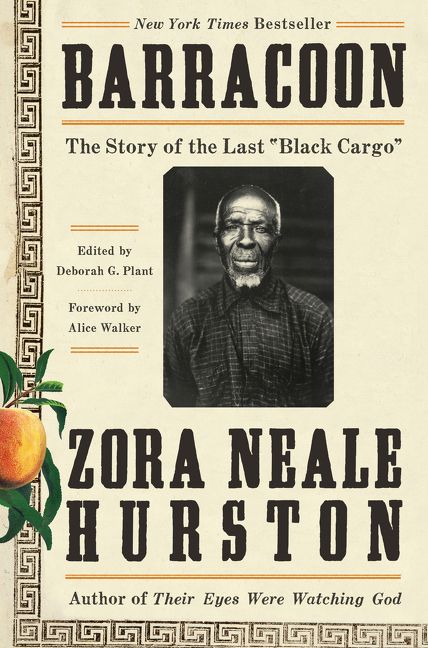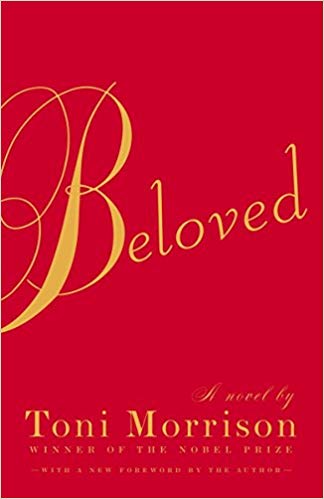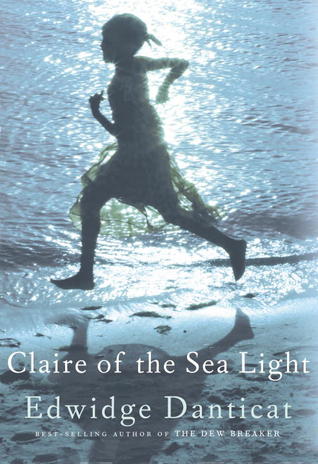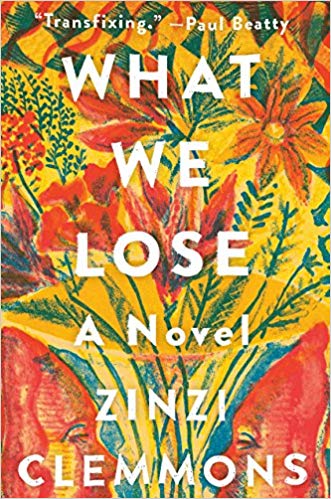by Ann Marie Bausch
When news of sexual assault allegations against author Junot Díaz broke in the spring of 2018, my first reaction was grief: Not him! Díaz was one of my favorite writers, an advocate for immigrants and the causes of the dispossessed worldwide, someone I felt I had learned from. But his alleged* victims were largely young female writers of color—people he had claimed to champion (*I use the word “alleged” because as others have pointed out, it protects me legally. I believe survivors). I began to think about what Zinzi Clemmons, the young writer who broke the silence, and Díaz’s other alleged victims must have felt as they were being harassed and manhandled, and my grief morphed into rage. I wished as many of us do during times of tragedy and turbulence that there was something I could do. Then I saw an incredibly practical and forehead-smackingly simple solution proposed by multiple women on Twitter: buy their books. Don’t let “economically” be yet another of the ways that survivors who speak up are punished.
I’ve got an Amazon app on my phone. Two clicks. Clemmons’ novel What We Lose was in my shopping cart. My 40th birthday was coming up, and I decided to use the moment to read the work of other Black women whose books had either never been assigned to me in school or that I had not taken the time to read on my own. (There’s a whole other essay to be written about the fact that I have a B.A. in English and a Master’s degree in Creative Writing and no one had ever put Their Eyes Were Watching God on a syllabus). That cart filled up quickly. Hurston. Morrison. Walker. There was no loss here—how many amazing writers are there who have never assaulted another person? And to be clear, I’m not looking for a medal. I feel the privilege of my enterprise; this doesn’t make me a hero. It has, however, left me deeply enriched as a reader and a human being, and, I hope, a little less ignorant. I’d like to share with you a few of the life-changing books I’ve read over the last several months, written by Black women of four generations, and I hope you’ll feel enriched by them as well.
 Zora Neale Hurston. I assume the bulk of a literary journal’s audience has already read Their Eyes Were Watching God, a classic. I hadn’t. Because I was clamoring to read Hurston’s newly-released Barracoon, I thought I should start at the beginning. Janie, the heroine of Eyes, will walk with me forever, as will the musicality of the characters’ talk as they sat on their porches and the literary magic Hurston created with it. This book is in my all-time top five. Truly. Barracoon is something much different. A work of nonfiction released decades after Hurston’s death and meticulously edited by Deborah G. Plant, it chronicles Hurston’s interviews and relationships with Kossola, also known as Cudjo Lewis, dubbed “the last black cargo.” Kossola was captured in Africa in 1861 and enslaved in the United States until the end of the Civil War. He lived into his late 90s, and Hurston, over a span of years, set out to tell his story. The book could not find a publisher in Hurston’s lifetime, because the editors of the age insisted that Kossola’s speech be set down not in his own dialect, which Hurston often transcribed phonetically, but in “proper” English. Hurston refused, and died penniless. When you read the book and feel as though you are in the room having the conversations yourself, feeling as though you can hear the sounds of Kossola’s voice, you will understand the gravity of the injustice—yet another heaped upon the ultimate of injustices—that the publishers’ insistence would have caused. I wept reading it, and couldn’t shake the thought that Hurston, who knew intimately an enslaved man, died in 1961, when my mother was 11 years old. That is how very recent this chapter in American history really was.
Zora Neale Hurston. I assume the bulk of a literary journal’s audience has already read Their Eyes Were Watching God, a classic. I hadn’t. Because I was clamoring to read Hurston’s newly-released Barracoon, I thought I should start at the beginning. Janie, the heroine of Eyes, will walk with me forever, as will the musicality of the characters’ talk as they sat on their porches and the literary magic Hurston created with it. This book is in my all-time top five. Truly. Barracoon is something much different. A work of nonfiction released decades after Hurston’s death and meticulously edited by Deborah G. Plant, it chronicles Hurston’s interviews and relationships with Kossola, also known as Cudjo Lewis, dubbed “the last black cargo.” Kossola was captured in Africa in 1861 and enslaved in the United States until the end of the Civil War. He lived into his late 90s, and Hurston, over a span of years, set out to tell his story. The book could not find a publisher in Hurston’s lifetime, because the editors of the age insisted that Kossola’s speech be set down not in his own dialect, which Hurston often transcribed phonetically, but in “proper” English. Hurston refused, and died penniless. When you read the book and feel as though you are in the room having the conversations yourself, feeling as though you can hear the sounds of Kossola’s voice, you will understand the gravity of the injustice—yet another heaped upon the ultimate of injustices—that the publishers’ insistence would have caused. I wept reading it, and couldn’t shake the thought that Hurston, who knew intimately an enslaved man, died in 1961, when my mother was 11 years old. That is how very recent this chapter in American history really was.
 Toni Morrison. I had read Morrison’s A Mercy several years before, and its uniqueness and power have stuck with me since. I had never read Beloved. If I met someone who had never heard of the United States, and I needed to hand them one book that would sum up the entirety of American history, that would give them everything they needed to know, Beloved would be it. Directly or indirectly, everything that has ever happened here is contained within its pages. It is all there. Suspense, tragedy, history, hope: Morrison is a Nobel prize winner. You are not taking any risks here. Read her entire catalog and then bow down in thanks. Start with Beloved.
Toni Morrison. I had read Morrison’s A Mercy several years before, and its uniqueness and power have stuck with me since. I had never read Beloved. If I met someone who had never heard of the United States, and I needed to hand them one book that would sum up the entirety of American history, that would give them everything they needed to know, Beloved would be it. Directly or indirectly, everything that has ever happened here is contained within its pages. It is all there. Suspense, tragedy, history, hope: Morrison is a Nobel prize winner. You are not taking any risks here. Read her entire catalog and then bow down in thanks. Start with Beloved.
 Edwidge Danticat. I read two books by the prize-winning Haitian-American this summer. First was The Farming of Bones (among the greatest book titles I can think of), a historical novel about the Parsley Massacre, a genocide perpetrated against Haitians in the 1930s. Which I had never heard of. We should not have to turn to novelists so that huge chunks of history are not erased from our collective consciousness, friends. But this is the world we live in, so I am tearfully grateful that the novelists are there. I will never forget the Spanish word for parsley (“perejil”), and if you read this book, neither will you. But it was Danticat’s Claire of the Sea Light that if I had to choose, is probably my favorite book of the last 20 years. I thought for a while that I would love for an English teacher to do a unit teaching it side by side with The Adventures of Huckleberry Finn. The richness of the conversations that could be evoked about race in the Americas over generations—the mind boggles. Both books feature protagonist children, absent or deceased parents, poverty, and perhaps most significantly, bodies of water that are characters unto themselves. But do you need one more person telling you to read Huck Finn? Honestly, just read Claire.
Edwidge Danticat. I read two books by the prize-winning Haitian-American this summer. First was The Farming of Bones (among the greatest book titles I can think of), a historical novel about the Parsley Massacre, a genocide perpetrated against Haitians in the 1930s. Which I had never heard of. We should not have to turn to novelists so that huge chunks of history are not erased from our collective consciousness, friends. But this is the world we live in, so I am tearfully grateful that the novelists are there. I will never forget the Spanish word for parsley (“perejil”), and if you read this book, neither will you. But it was Danticat’s Claire of the Sea Light that if I had to choose, is probably my favorite book of the last 20 years. I thought for a while that I would love for an English teacher to do a unit teaching it side by side with The Adventures of Huckleberry Finn. The richness of the conversations that could be evoked about race in the Americas over generations—the mind boggles. Both books feature protagonist children, absent or deceased parents, poverty, and perhaps most significantly, bodies of water that are characters unto themselves. But do you need one more person telling you to read Huck Finn? Honestly, just read Claire.
 Zinzi Clemmons. In addition to her incredible personal courage in speaking out against a literary icon, Clemmons, who is on her way to becoming an icon herself, and her novel What We Lose are what give me a glimmer of hope for this often hostile and imperiled world—a brilliant young woman writing across cultures (Clemmons herself is the daughter of a South African mother and an American father) and boldly gifting us her voice. In a time when we all seem to be losing so much, make sure you don’t lose Clemmons. I owe her my summer of literary enrichment. Buy her book. Let’s make sure that she and others like her are the writers who are with us in the years to come.
Zinzi Clemmons. In addition to her incredible personal courage in speaking out against a literary icon, Clemmons, who is on her way to becoming an icon herself, and her novel What We Lose are what give me a glimmer of hope for this often hostile and imperiled world—a brilliant young woman writing across cultures (Clemmons herself is the daughter of a South African mother and an American father) and boldly gifting us her voice. In a time when we all seem to be losing so much, make sure you don’t lose Clemmons. I owe her my summer of literary enrichment. Buy her book. Let’s make sure that she and others like her are the writers who are with us in the years to come.
Special thanks to Maggie Mumford for her input on the first draft of this piece.
Ann Marie Bausch is a writer and dog mom from Norfolk, Virginia. In addition to Rock & Sling, her nonfiction has appeared on The Mighty, and her fiction has appeared in Narrative Magazine. Find her at seekingandspeaking.wordpress.com, on Twitter at @anniebausch, or on Instagram at @anniemb4.

6 Responses
Anne Marie, i had no idea you were a published writer. Congrats! Your cousin Rich Nelson
Thank you so much for reading!
Excellent! A great resource for broadening reading – Mahogany Books – online and they have a brick-and-mortar store in Anacostia. I ordered Barracoon from them, and loved reading about Hurston’s forays to glean an important story from an old man, eating peaches with him on his porch. https://www.mahoganybooks.com/
That book got into my DNA. I have rarely been so moved.
Reblogged this on Seeking and Speaking.
Reblogged this on Grassroots Writers Guild's Blog and commented:
One of the many ways we learn to branch out in our reading from what is offered in the filtered lists of big publishing houses!